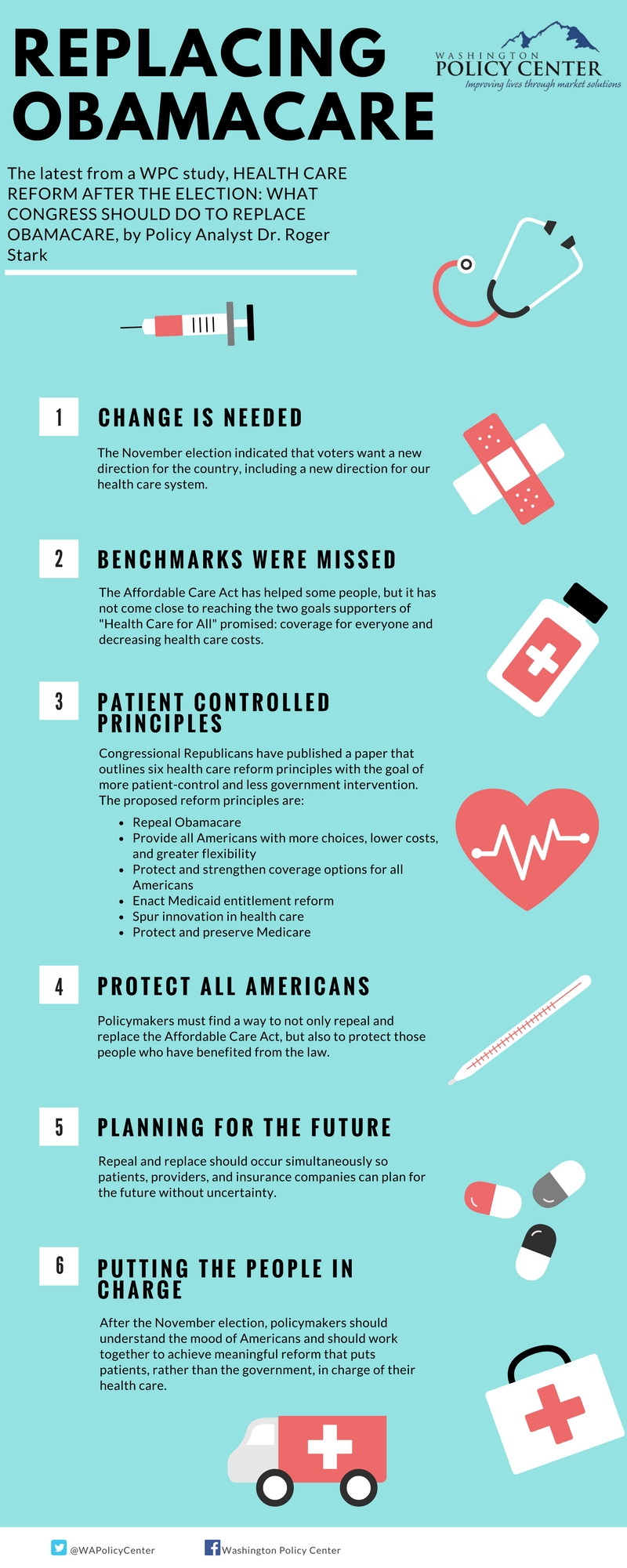Health Care Reform After the Election
Republicans won nationally in the recent November election. From a policy standpoint, American voters want a new direction for the country, including a new direction for our health care system.
The Affordable Care Act (ACA), passed in 2010, was enacted as a highly partisan, complex, 2,700 page federal law. Government officials then felt obligated to add over 20,000 pages of new regulations in an effort to make the legislation workable. The Obama Administration, Congress, and the U.S. Supreme Court have made over 70 major changes in the ACA law in an effort to make it more acceptable. Yet a majority of Americans has opposed the entire law or significant parts of it since it passed.
Unquestionably, the ACA has helped some people, but it has not come close to reaching the two goals supporters of “Health Care for All” promised: coverage for everyone and decreasing health care costs. The law is too complex, too political, and too expensive. It clearly imposes too large a regulatory burden on Americans to be effective.

Key Findings
- The November election indicated that voters want a new direction for the country, including a new direction for our health care system.
- The Affordable Care Act has helped some people, but it has not come close to reaching the two goals supporters of “Health Care for All” promised: coverage for everyone and decreasing health care costs.
- Congressional Republicans have published a paper that outlines six health care reform principles with the goal of more patient-control and less government intervention. The proposed reform principles are:
- Repeal Obamacare
- Provide all Americans with more choices, lower costs, and greater flexibility
- Protect and strengthen coverage options for all Americans
- Enact Medicaid entitlement reform
- Spur innovation in health care
- Protect and preserve Medicare
- Policymakers must find a way to not only repeal and replace the Affordable Care Act, but to protect those people who have benefited from the law.
- Repeal and replace should occur simultaneously so patients, providers, and insurance companies can plan for the future without uncertainty.
- After the November election, policymakers should understand the mood of Americans and should work together to achieve meaningful reform that puts patients, rather than the government, in charge of their health care.







